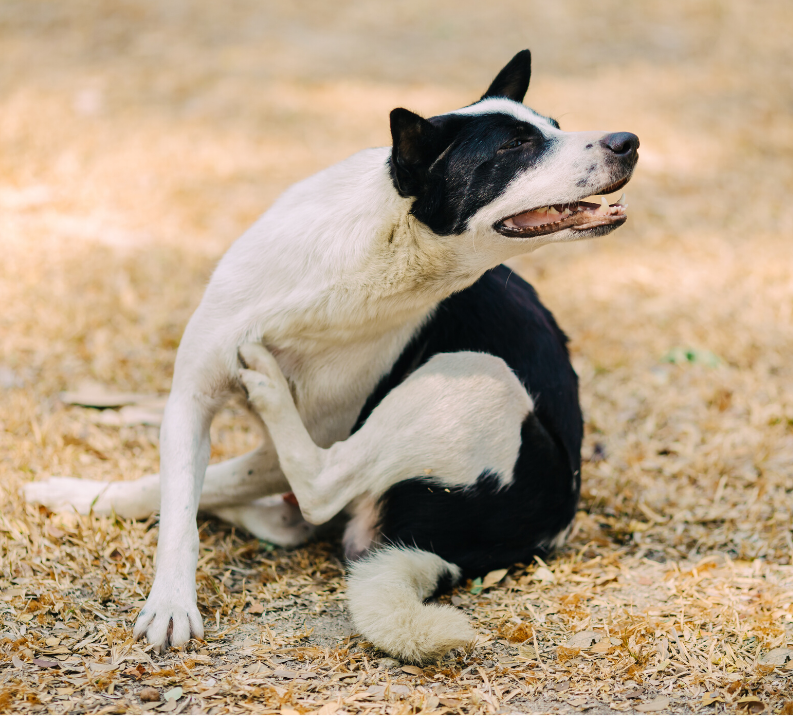Fleas are more than just a nuisance to your dog or cat. They can cause serious illnesses in your pets.
Fleas are tiny parasitic insects that feed on the blood of their hosts. Pets can easily pick up fleas when outdoors or from other animals. They are active all times of the year but are more likely to bother your pet in the warmer months.
Adult fleas lay their eggs in the hair of dogs and cats and can lay as many as 50 eggs a day. These eggs fall to the ground every time your pet shakes, scratches or lies down infesting your home and yard. Fleas can survive on surfaces for weeks or months until a potential host comes by.
 Flea bites can cause a sharp pain and irritation that makes your pet itchy. Many pets are allergic to the flea saliva and can suffer intense itching, red and flaky skin, scabs, hot spots, hair loss and skin infections. Fleas carry tapeworms, an intestinal parasite, that can make your pet very sick. Another serious result of a flea infestation is anemia caused by a loss of blood and dangerous drop in the number of red blood cells. Puppies and kittens are especially at risk of anemia from fleas.
Flea bites can cause a sharp pain and irritation that makes your pet itchy. Many pets are allergic to the flea saliva and can suffer intense itching, red and flaky skin, scabs, hot spots, hair loss and skin infections. Fleas carry tapeworms, an intestinal parasite, that can make your pet very sick. Another serious result of a flea infestation is anemia caused by a loss of blood and dangerous drop in the number of red blood cells. Puppies and kittens are especially at risk of anemia from fleas.
Because fleas are so small, about 1/8 inch, they are hard to see unless they are moving on a sparsely haired part of your pet (belly, inner thighs, ears). What you can usually see is brown “flea dirt”. If you rehydrate that it will turn from brown to red on a wet paper towel. That red is your pet’s dried blood! The flea dirt may also be seen on your pet’s bed, carpet, chair or wherever they spend time.
If you find fleas on your pet, action needs to be taken immediately because fleas multiply fast. All pets in the home need to be treated and so does your house. Working with your veterinarian to determine the best flea killer for your pet is the most effective way to get rid of fleas.
Treating your home involves frequently washing all pet beds and soft toys, as well as your own bedding. Floors and upholstered furniture need vacuumed regularly, and the bag disposed of immediately. An environmental flea spray or fogger may need to be applied in your home. Alternatively, you can call an exterminator. Your yard may also need to be treated.
The very best thing to do for you and your pet is to use flea preventative regularly. There are many available and although they may seem expensive, it is far less getting rid of them once they’ve invaded your home. Talk to your veterinarian to determine which product is best for your pet.
As you can see getting rid of fleas is a lot of work. Preventing them is easy!
